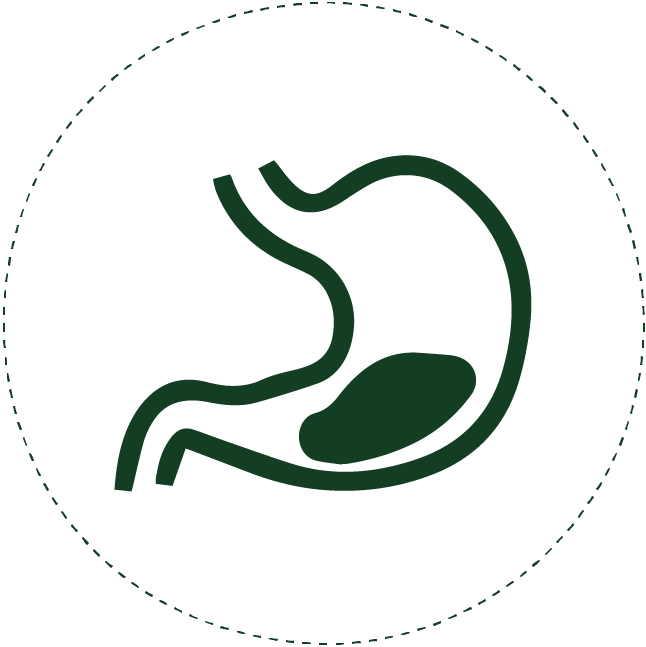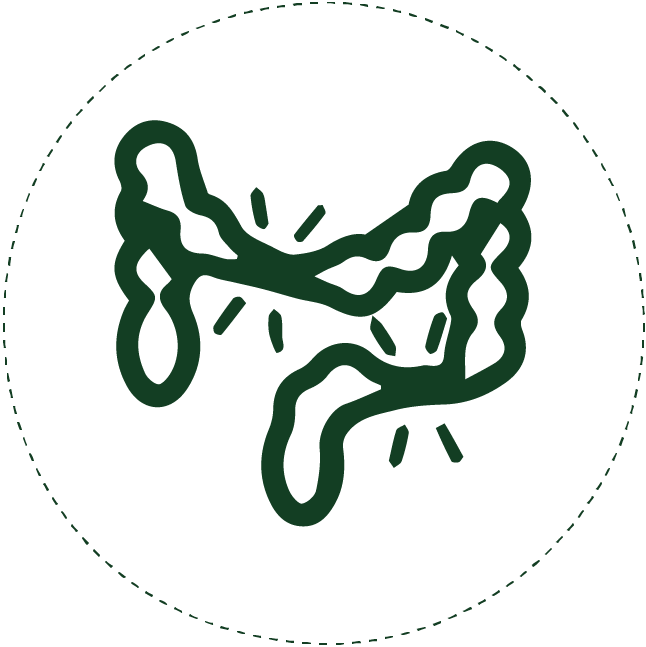

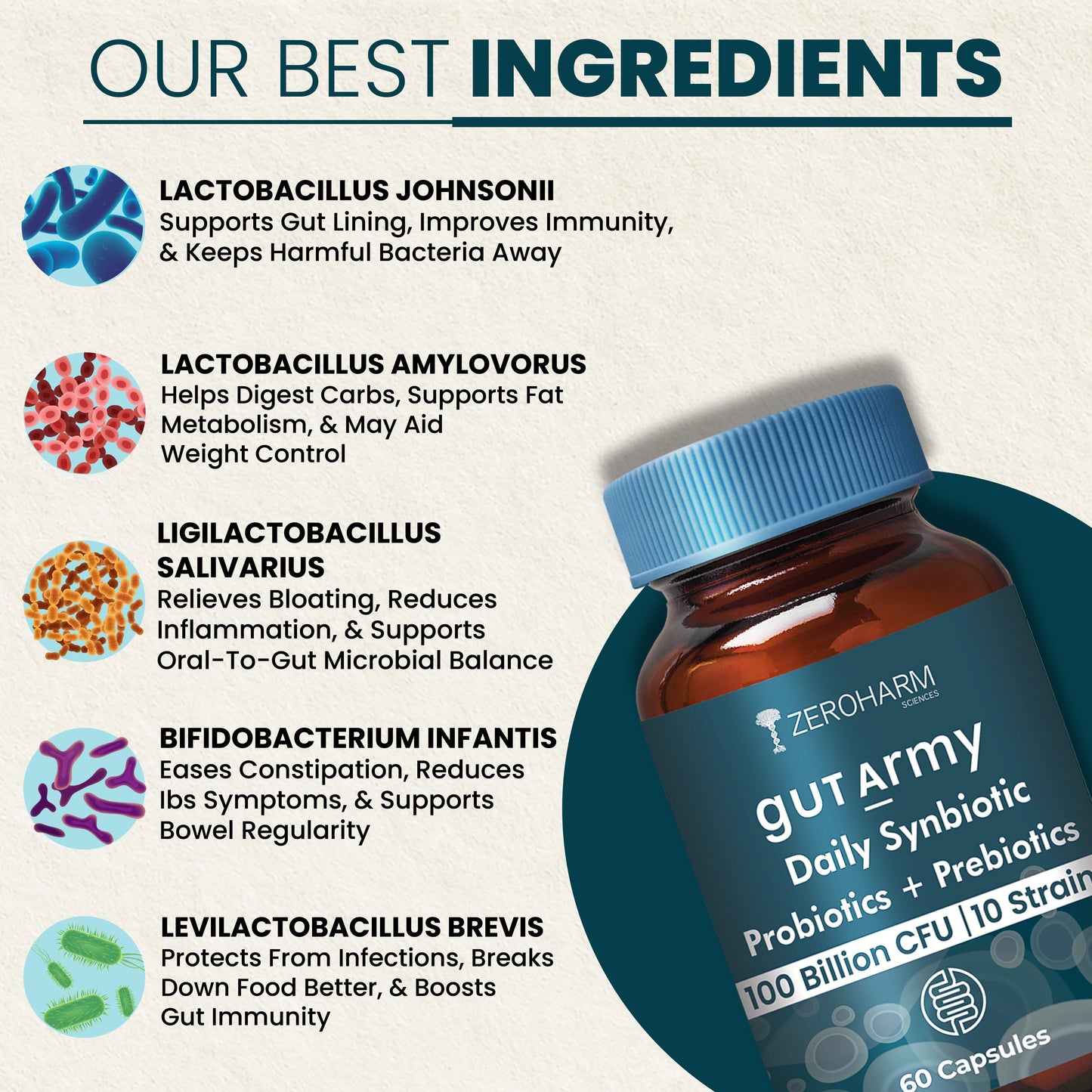
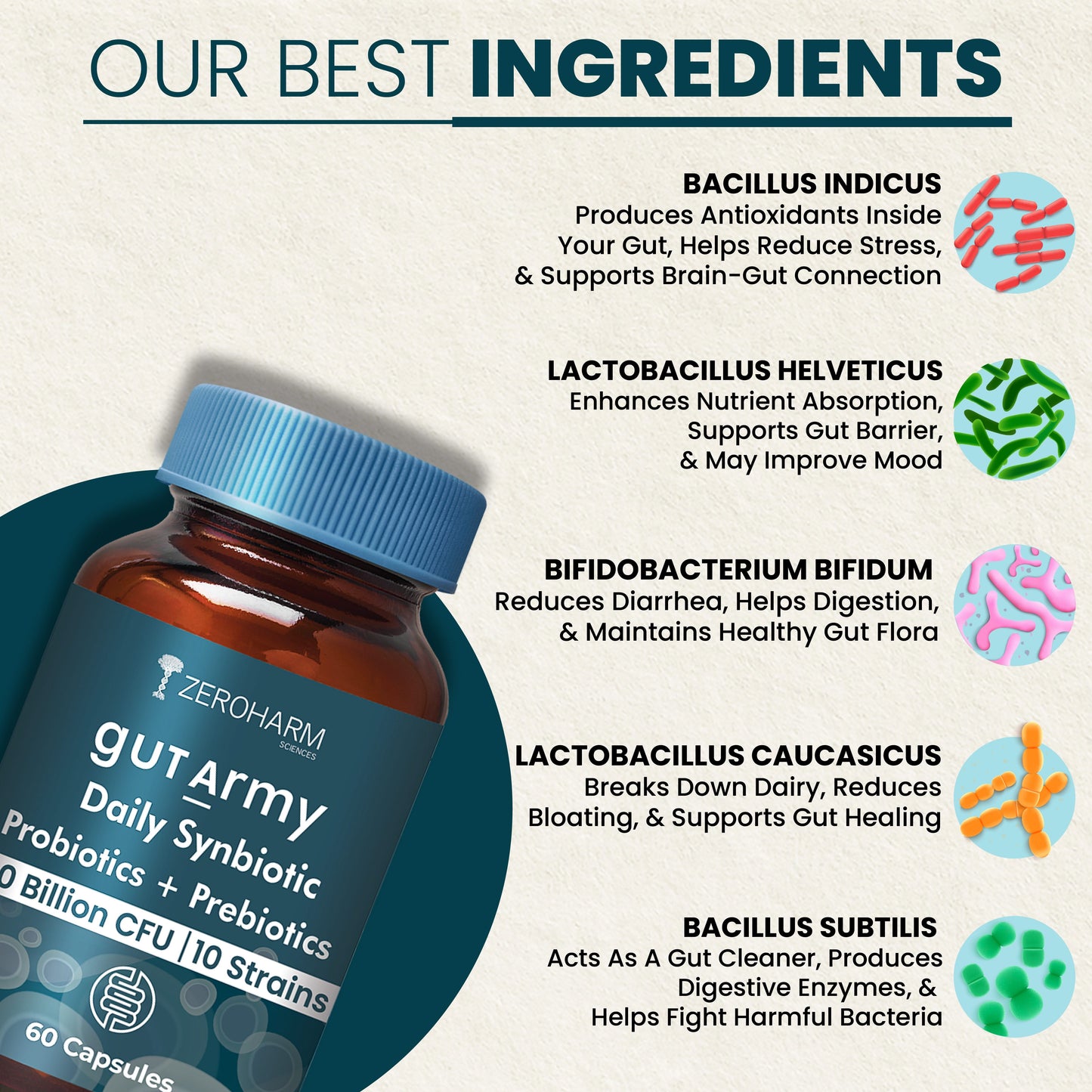

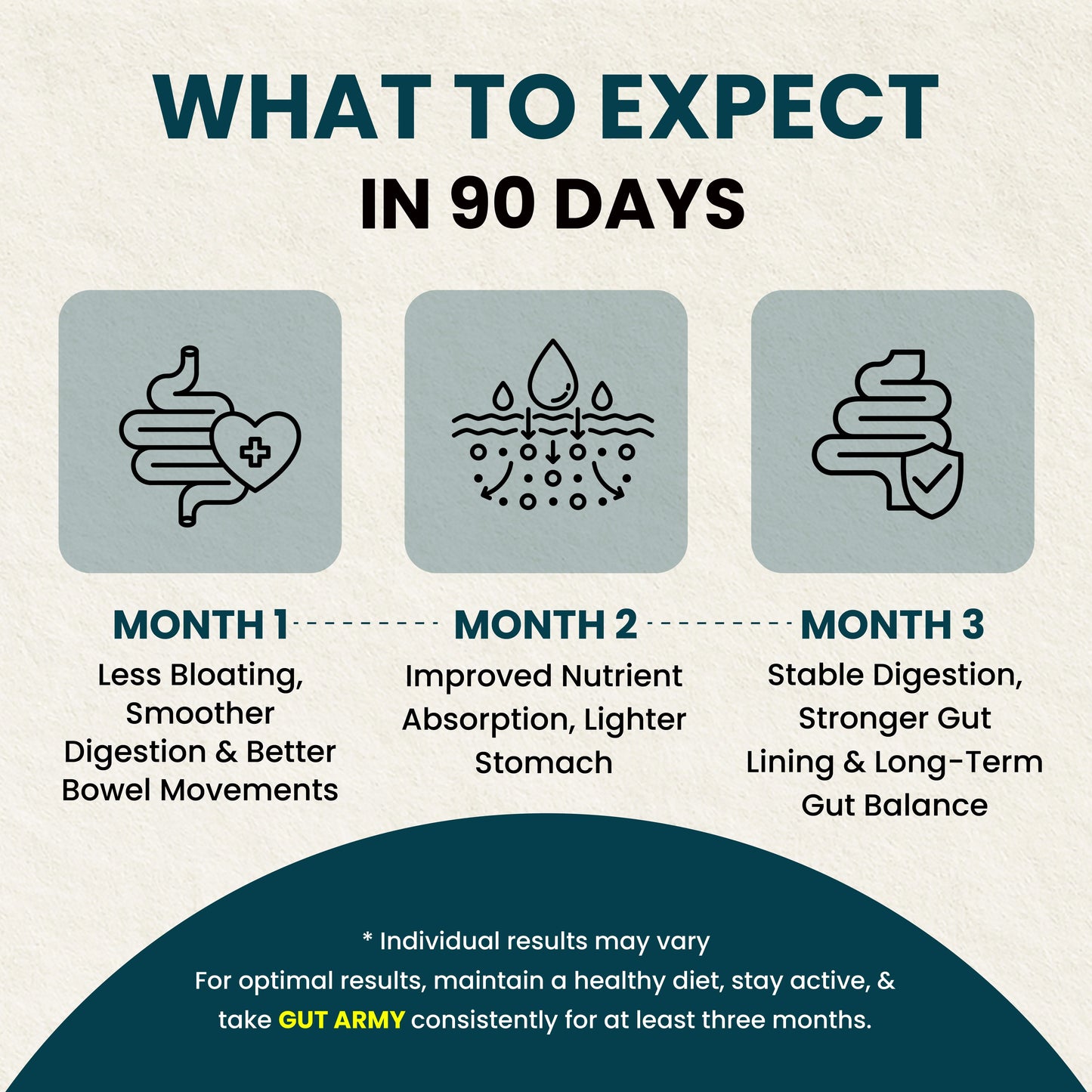


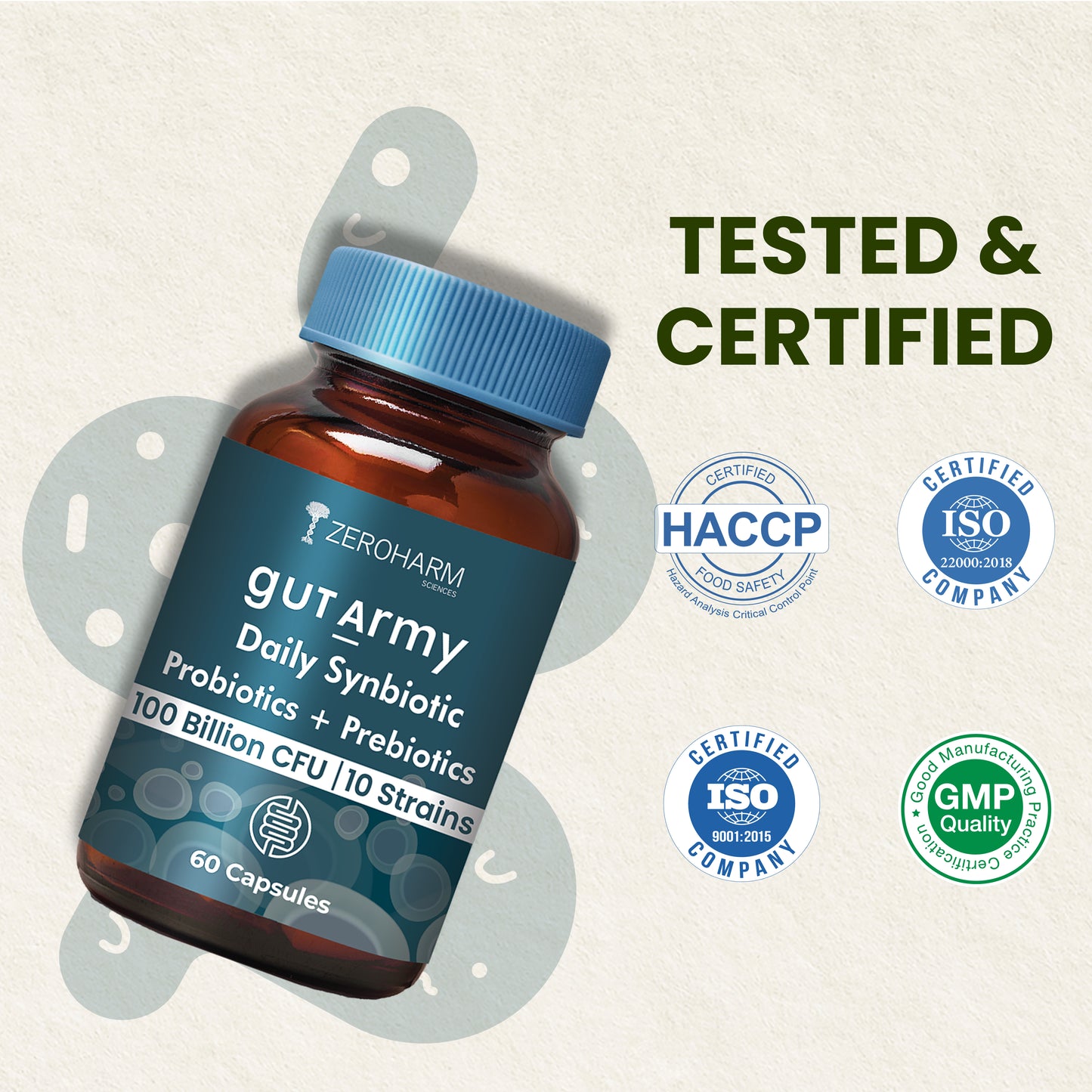
Nature's Purity, Science's Precision
4 Reasons to Buy
Nature-Sourced
Pristine, Wild Grown Ingredients
Aqueous Extraction
Chemical-free herbal extract process
Nano-Potent Boost
Enhanced ingredient solubility & absorption
Protected Packaging
Glass bottles for preserved potency
Recognized and certified by leading authorities
9 Patents Granted in India, UK, USA, AU & CA and 4 Patents Pending in India
Empowering Innovation Through Strategic Partnerships
Sourced from Nature, Purified for Potency
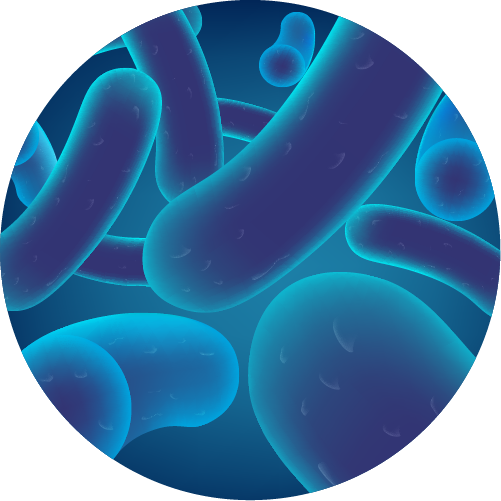
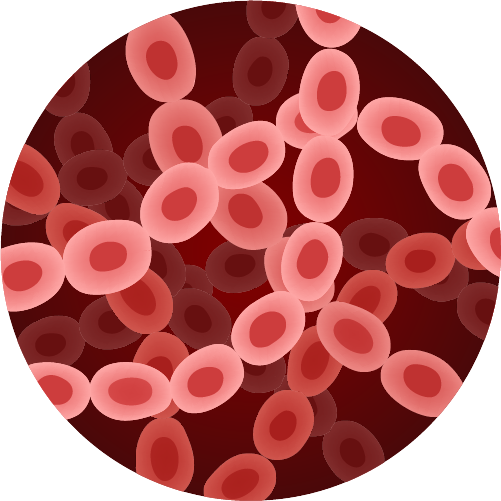
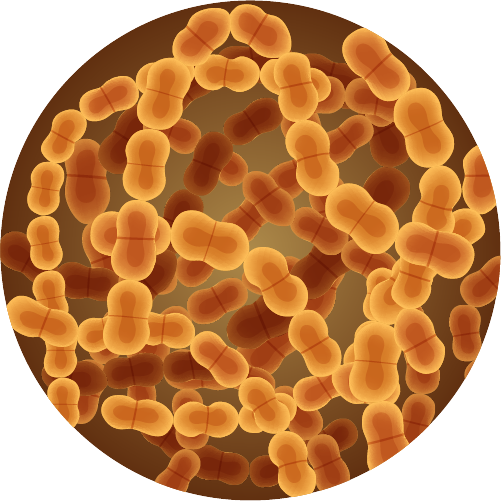
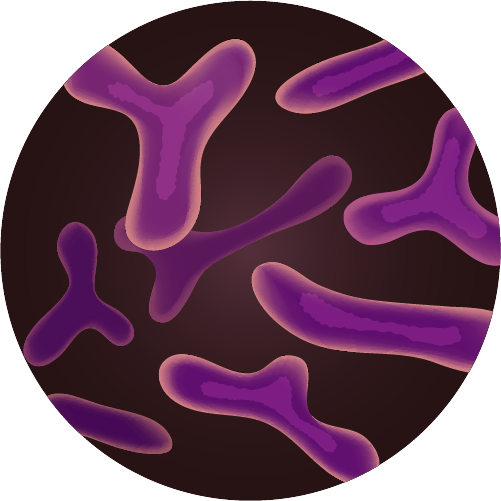
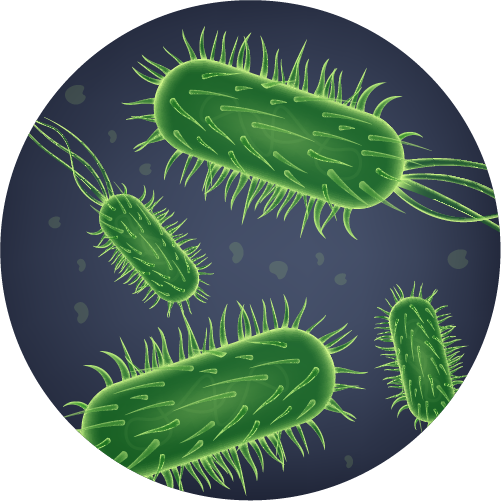
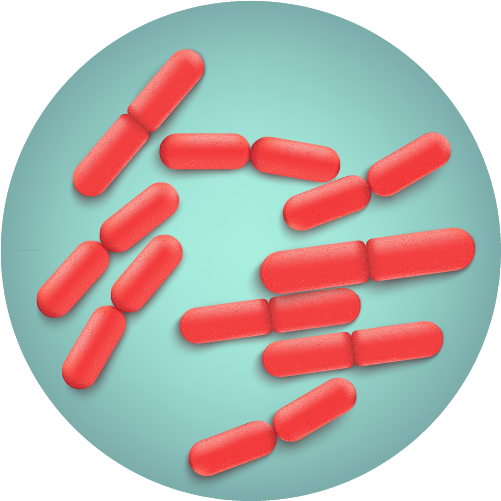
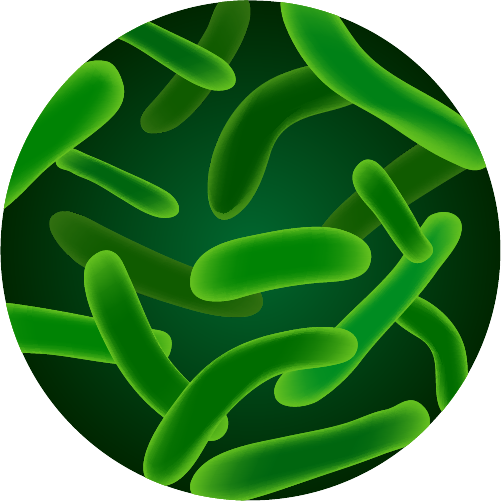

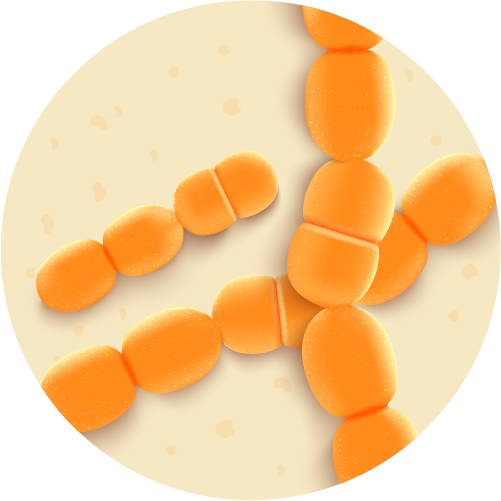
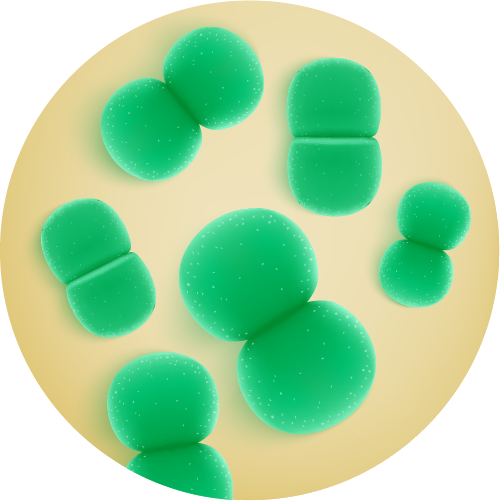
Why Zeroharm Supplements Are The Best?
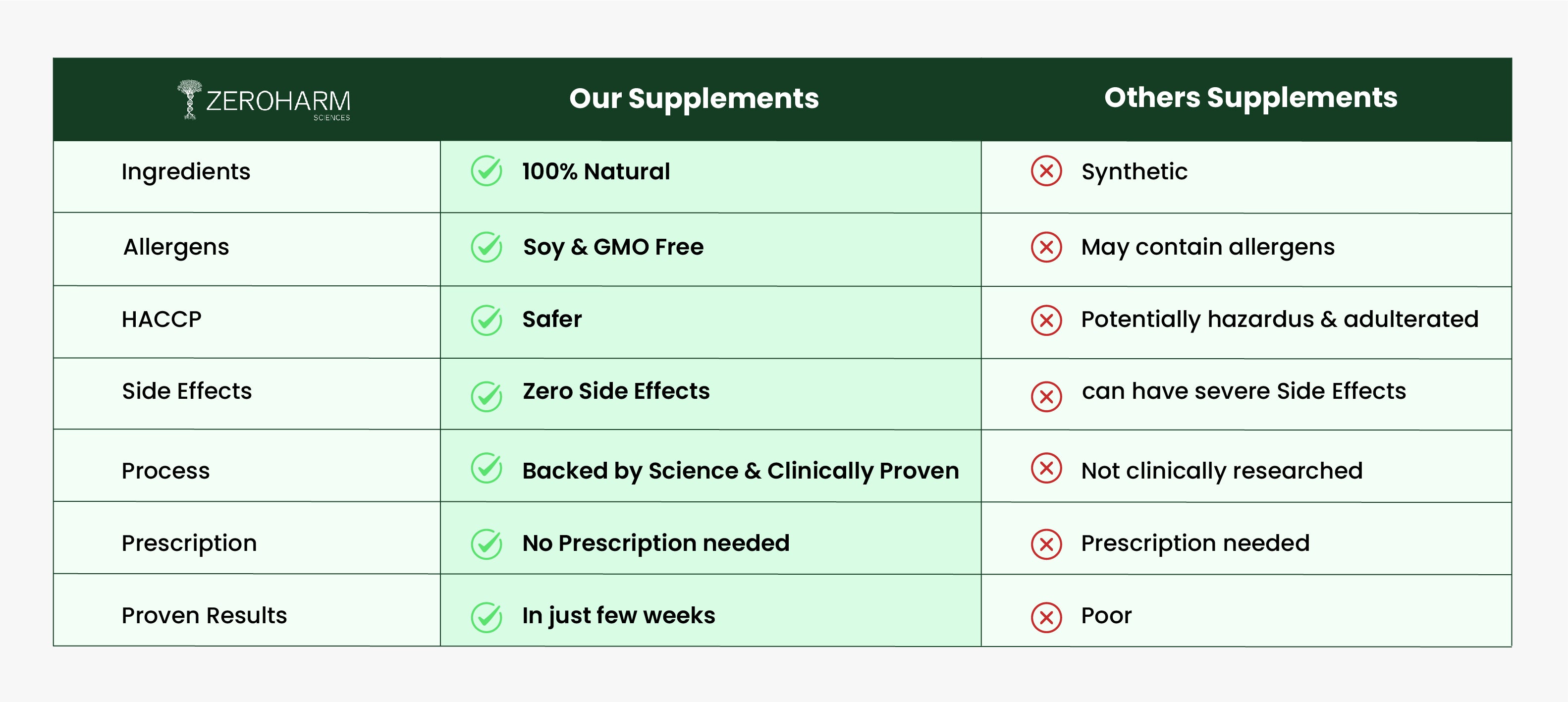
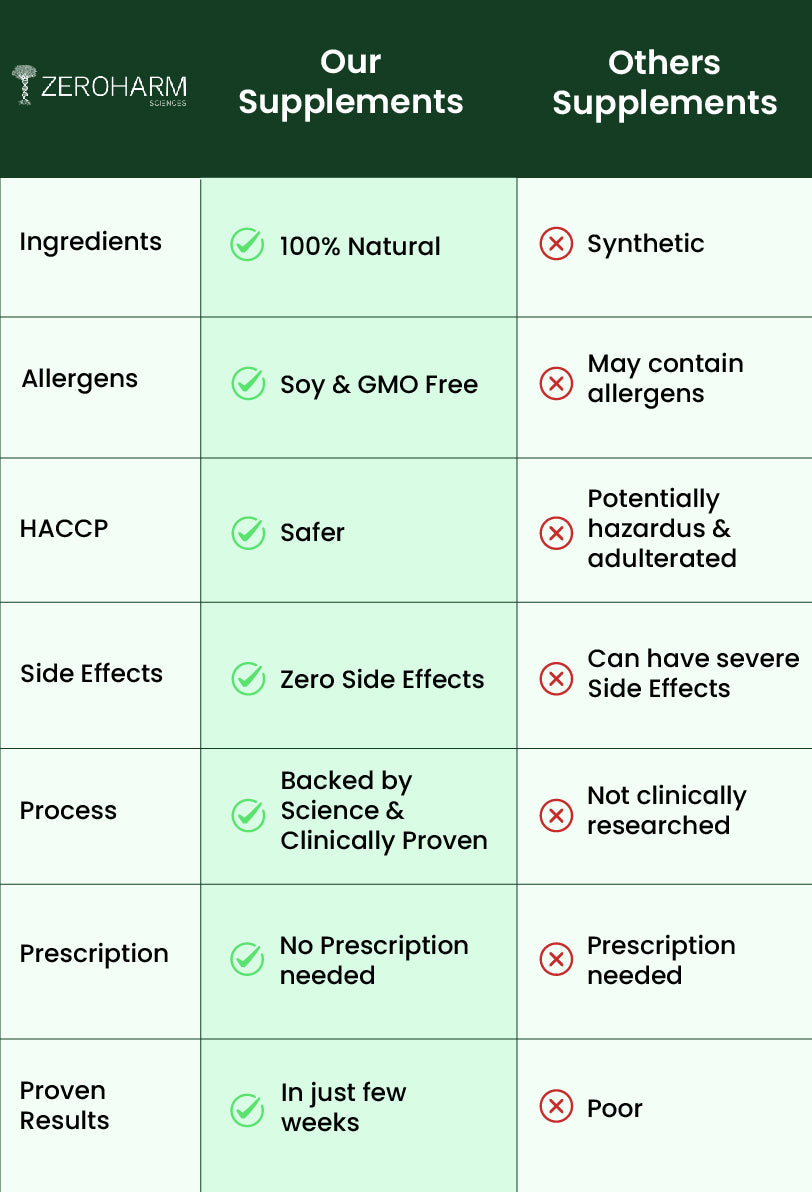
Consumer Studies
What To Expect
Month 1
Less bloating, smoother digestion & better bowel movements.

Month 2
Improved nutrient absorption, lighter stomach & better energy.

Month 3
Stable digestion, stronger gut lining & long-term gut balance.

Frequently asked questions (FAQs)
What are probiotics and prebiotics?
Probiotics are beneficial bacteria, and prebiotics is food for these bacteria. Both prebiotics and probiotics are important for human health. However, they have different roles: Probiotics.Probiotics are active bacterial cultures. These are live bacteria found in certain foods or supplements. They can provide numerous health benefits. Prebiotics.Prebiotics are substances that can only be metabolized by gut bacteria and not the human host. These substances come from types of carbs (mostly fiber) that humans can’t digest. The beneficial bacteria in your gut eat this fiber. The gut bacteria, collectively referred to as the gut flora, or gut microbiota, perform many important functions in the body. Eating balanced amounts of both probiotics and prebiotics can help ensure that you have the right balance of these bacteria to keep your gut microbiota healthy.
What are considered as adequate amounts ?
This is very important, and you’ll generally see quantities enumerated on a label as a certain billion or trillion CFU or AFU. To meet these criteria, each probiotic must be associated with an effective dosage, and this dosage is arrived at through clinical study or studies. Health benefits: So you’ve taken some live bacteria in the right amounts. But are they doing anything for you? To satisfy the definition of a probiotic, the live cultures must demonstrate a health benefit. This means each specific strain (not just the species) must have been clinically studied and shown to be beneficial.
What are Synbiotics?
Products that contain both prebiotics and probiotics are referred to as synbiotics. Synbiotic products usually combine friendly bacteria along with some food for the bacteria to eat (the prebiotics), all in one supplement. The most common probiotic bacteria are Lactobacillus and Bifidobacteria. Other common kinds are Saccharomyces, Streptococcus, Enterococcus, Escherichia, and Bacillus. Each genus comprises different species, and each species has many strains. Please refer to the section on Gut Army Microbial Consortia, which explains specific strains, the species, subspecies, and their specific health benefits. Different probiotics have been found to address different health conditions. Therefore, choosing the right type — or types — of probiotics is essential. Gut Army is a broad-spectrum Synbiotic, with 25 strains, combining different species in the same product.
How do probiotics work?
We first need to clear up a common misconception: that probiotics have to colonize your gut and alter the composition of your microbiome to be effective. That’s not true: Probiotics typically don’t take up residence in your gut. Compared to the tens of trillions of microbes already rooted in your intestinal tract, most probiotics don’t contain enough new bacteria to make a significant difference in the composition of your microbiota. What scientists say is that, as transient microbes, probiotics travel through your colon, interacting with your immune cells, gut cells, dietary nutrients, and existing bacteria to, directly and indirectly, deliver benefits. Some enhance the gene expressions involved in tight junction signaling, which help protect against intestinal permeability—this means a tight gut barrier. Others trigger neurotransmitters that stimulate muscle contractions for increased motility—think easy, regular poops. Yet other bacteria produce byproducts like short-chain fatty acids, which have been shown—extensively—to be beneficial for metabolic and gut-immune health.
How does food affect the gut microbiota?
The food you eat plays an important role in the balance of good and bad gut bacteria. For example, high-sugar and high-fat diets negatively influence gut bacteria and may contribute to insulin resistance and other conditions. Once you regularly feed the wrong bacteria, they’re able to grow faster and colonize more easily, without as many helpful bacteria to prevent them from doing so. Harmful bacteria and less healthy gut flora have also been associated with higher body mass index (BMI). Additionally, foods treated with pesticides may have negative effects on gut bacteria, although more research is needed to confirm this. Studies have also shown that antibiotics can cause permanent changes in certain types of bacteria, especially when taken during childhood and adolescence. Because antibiotic use is so widespread, researchers are now studying how this may cause health problems in people later in life.
What are Gut Army Prebiotic & Probiotic Capsules, and how do they work?
Gut Army Prebiotic & Probiotic Capsules contain a blend of 10 powerful probiotic strains and prebiotics to balance your gut, enhance digestion, and boost immunity.
How do the probiotic strains in Gut Army benefit my gut health?
The 10 probiotic strains, including Lactobacillus Johnsonii and Bifidobacterium Infantis, work together to restore healthy gut flora, improve digestion, reduce bloating, and support overall digestive health.
How often should I take Gut Army Prebiotic & Probiotic Capsules?
Take 2 capsules daily, 30 minutes before breakfast and dinner, for optimal digestive and immune support.
How soon can I expect to feel the benefits of Gut Army?
Most users notice improvements in digestion, less bloating, and better bowel movements within the first month of use.
Can Gut Army help with constipation?
Yes, the probiotic strains in Gut Army, like Bifidobacterium Infantis and Lactobacillus Johnsonii, support regular bowel movements and can help ease constipation.
Will Gut Army help with bloating?
Absolutely! Strains like Lactobacillus Amylovorus and Ligilactobacillus Salivarius help break down carbs and reduce bloating, giving you a flatter stomach and better digestion.
Are the probiotics in Gut Army safe to take with other medications?
Yes, Gut Army probiotics are generally safe to take with other medications. However, it's always best to consult your doctor before adding any supplement to your routine.
Can Gut Army help improve my immune system?
Yes! The probiotic strains in Gut Army, particularly Lactobacillus Helveticus and Bacillus Indicus, strengthen your immune system, helping your body fight off infections.
What makes Gut Army different from other probiotics on the market?
Gut Army contains 10 unique probiotic strains with 100 billion CFUs, along with prebiotics for better absorption, supporting both gut health and immune function more effectively than many other probiotics.
Do Gut Army capsules contain any allergens?
No, Gut Army capsules are free from common allergens like dairy, gluten, and soy. However, if you have a specific allergy or sensitivity, please check the full ingredient list on the product label.










 Reduces Gas, Bloating & Acidity
Reduces Gas, Bloating & Acidity Improves Digestion & Nutrient Absorption
Improves Digestion & Nutrient Absorption Promotes Regular & Easy Bowel Movements
Promotes Regular & Easy Bowel Movements Supports Weight Management
Supports Weight Management 












































